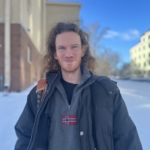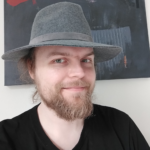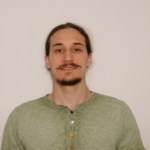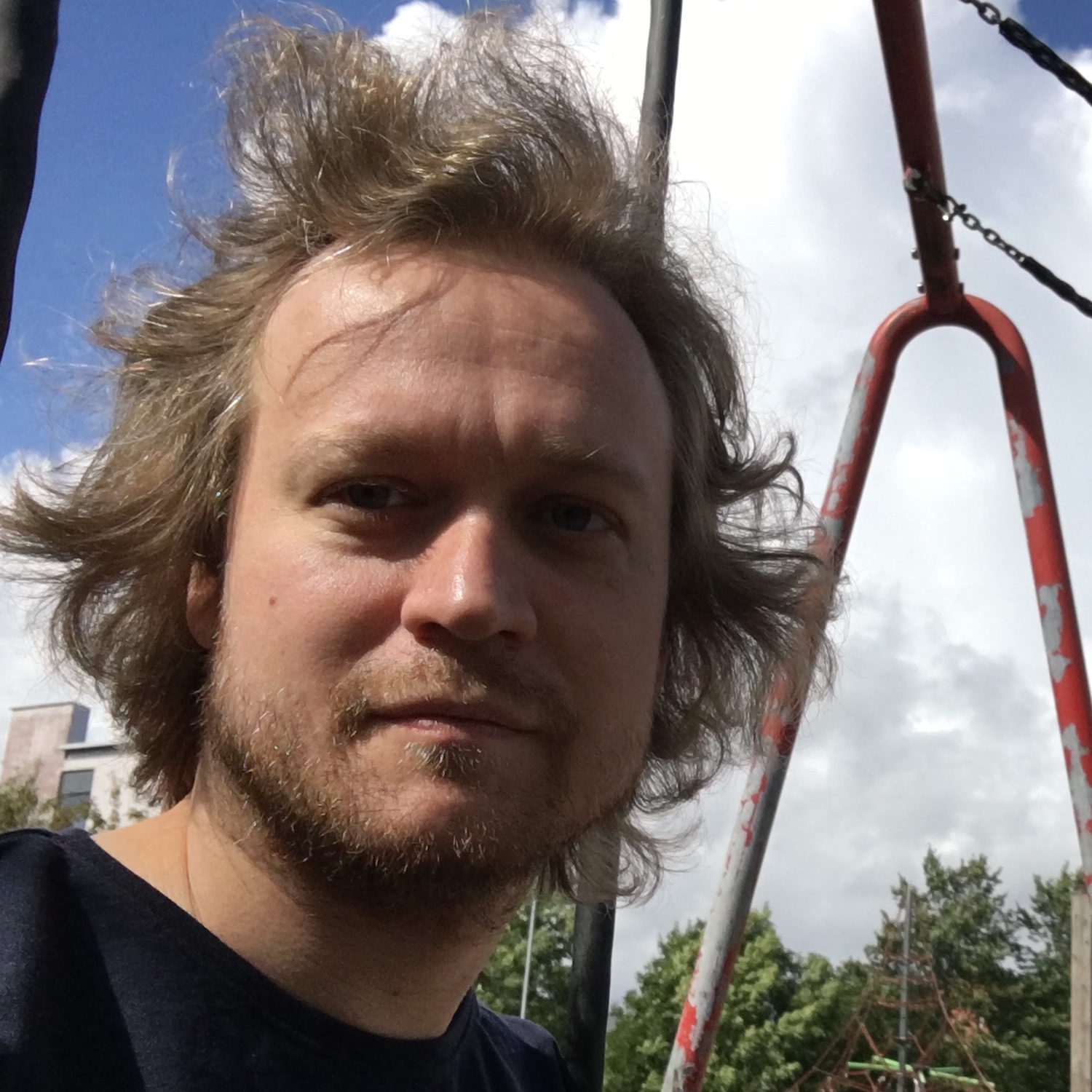Current HIIT Researchers
HIIT provides funding for two types of researchers: Postdoctoral Researchers and Research Fellows.
HIIT Postdoctoral Fellow positions are intended for researchers who have recently completed their doctoral degrees. HIIT Postdoctoral Fellows are not hired to work on externally funded projects, but are intended to support one or more of the HIIT strategic focus areas. These positions provide opportunities for development as a researcher within a research group from one of the four departments conducting ICT research in Aalto University and University of Helsinki.
The initial contract period is normally for two years with the possibility of a one year extension up to a total of three years.
HIIT Research Fellow positions support the career development of excellent advanced researchers who already have some postdoctoral research experience. While HIIT Research Fellows have a designated supervisor at University of Helsinki or Aalto, they are expected to develop their own research agenda and to gain the skills necessary to lead their own research group in the future. HIIT Research Fellows should strengthen Helsinki’s ICT research community either through collaboration or by linking ICT research with another scientific discipline. In either case, excellence and potential for impact are the primary criteria for HIIT Research Fellow funding.
The initial contract period is normally for three years with the possibility of a two year extension up to a total of five years.
Please find presentations of the HIIT Postdoctoral Fellows and HIIT Research Fellows below. For presentations of former HIIT Postdoctoral fellows and HIIT Research Fellows, please click here.

Florian Adriaens received his PhD degree in 2020 at Ghent University as a member of the Artificial Intelligence & Data Analytics Group led by Prof. Tijl De Bie, and co-supervised by Prof. Jefrey Lijffijt. After graduating he worked for two years as a postdoctoral researcher in KTH University in the data mining group of Prof. Aristides Gionis. Since January 2023 Florian started working as a HIIT postdoctoral fellow under the supervision of Prof. Nikolaj Tatti.
His broad research interests include graph algorithms, social-network analysis and graph mining. His current research is focused on algorithm design for computational problems related to polarization and distance reduction in social networks.
Sample of recent publications:[1] F. Adriaens, S. Apers. Testing Cluster Properties of Signed Graphs. To appear in TheWebConf 2023.
[2] F. Adriaens, A. Gionis. Diameter Minimization by Shortcutting with Degree Constraints IEEE International Conference on Data Mining. 2022.
[3] R.C. Tzeng, P.A. Wang, F. Adriaens, A. Gionis, C.J. Lu. Improved analysis of randomized SVD for top-eigenvector estimation. International Conference on Artificial Intelligence and Statistics.

Nadia Ady (she/they) is an artificial intelligence researcher who is particularly excited about the possibilities for imbuing machines with traits of creativity and curiosity. Her recent work has aimed to help us achieve the benefits of specific curiosity in machine learners, better understand the landscape of intrinsically motivated learning algorithms, and explore the implications of translating concepts (like curiosity and creativity) from human psychology into artificial intelligence. Nadia completed a Ph.D. at the University of Alberta in 2023, working in the Reinforcement Learning and Artificial Intelligence Lab under the supervision of Patrick M. Pilarski. She is now working in the Autotelic Interaction Research Group at Aalto Computer Science, led by Christian Guckelsberger. Nadia is keen to explore the HIIT community for engaging discussions and future collaborations.
Sample of publications:
[1] N. M. Ady, R. Shariff, J. Günther, and P. M. Pilarski. Five Properties of Specific Curiosity You Didn’t Know Curious Machines Should Have. arXiv preprint 2212.00187
[2] N. M. Ady and F. Rice, Interdisciplinary Methods in Computational Creativity: How Human Variables Shape Human-Inspired AI Research. Proceedings of the 14th International Conference on Computational Creativity, ICCC’23, 2023. (Awarded Best Student Paper.)
[3] C. Linke, N. M. Ady, M. White, T. Degris, and A. White, Adapting Behaviour via Intrinsic Reward: A Survey and Empirical Study. Journal of Artificial Intelligence Research. 69, 1287-1332. 2020.
[4] J. Günther, N. M. Ady, A. Kearney, M. R. Dawson, P. M. Pilarski, Examining the Use of Temporal-Difference Incremental Delta-Bar-Delta for Real-World Predictive Knowledge Architectures. Frontiers in Robotics and AI – Computational Intelligence in Robotics. 2020

Jarno Alanko received his PhD in 2020 at the University of Helsinki under the supervision of Veli Mäkinen. During 2020-2022, he worked as a post-doctoral researcher with professor Travis Gagie at Dalhousie University and professor Keijo Heljanko at the University of Helsinki.
Alanko’s work focuses on compact data structures for bioinformatics applications. Research highlights include the generalization of the concept of tunneling to Wheeler graphs [1] (Capocelli prize at DCC 2019), an optimal solution to the repeat-free minimum spectrum-preserving string set problem [2] (Best paper award at WABI 2022), and introduction of the concept of the Spectral Burrows-Wheeler transform for succinct indexing of k-mer spectra [3] (Best paper award at ACDA 2023).
Alanko is also the lead developer in the Themisto project [4] to build pseudoalignment index structures scalable to hundreds of thousands of bacterial genomes. The Themisto pseudoaligner has been used to develop bacterial genomic epidemiology with mixed samples and to study the pathogen competition in neonatal gut colonisation.
Sample of publications
[1] Alanko, Jarno, et al. “Tunneling on wheeler graphs.” 2019 Data Compression Conference (DCC). IEEE, 2019.
[2] Schmidt, Sebastian, and Jarno Alanko. “Eulertigs: Minimum Plain Text Representation of k-mer Sets Without Repetitions in Linear Time.” Workshop on Algorithms in Bioinformatics. Schloss Dagstuhl-Leibniz-Zentrum für Informatik, 2022.
[3] Alanko, Jarno N., Simon J. Puglisi, and Jaakko Vuohtoniemi. “Small Searchable k-Spectra via Subset Rank Queries on the Spectral Burrows-Wheeler Transform.” SIAM Conference on Applied and Computational Discrete Algorithms (ACDA23). Society for Industrial and Applied Mathematics, 2023.
[4] Alanko, Jarno N., et al. “Themisto: a scalable colored k-mer index for sensitive pseudoalignment against hundreds of thousands of bacterial genomes.” to appear in Bioinformatics (2023).

Melissa Antonelli
HIIT Postdoctoral Fellow 1.4.2023-31.3.2025
Melissa received her Ph.D. in Computer Science and Engineering in 2023 at the University of Bologna, where she was part of the FOCUS group. Her doctoral research focused on logical foundations of randomised computation and was supervised by Ugo Dal Lago and co-supervised by Paolo Pistone. She currently works as a post-doctoral researcher at HIIT, in the focus area Foundations of Computing.
Broadly speaking, Melissa’s research concerns interactions between logic and theoretical computer science, with a special attention to proof theory, modal logic and computational complexity theory. At the moment, she is working on the (logical and implicit) characterizations of probabilistic and circuit complexity classes. Her research is supervised by Mikko Koivisto and Juha Kontinen, and is conducted in collaboration with Arnaud Durand.
Sample of publications
[1] M. Antonelli, U. Dal Lago, P. Pistone, “Towards Logical Foundations for Probabilistic Computation“, Annals of Pure and Applied Logic, 2023.
[2] M. Antonelli, U. Dal Lago, P. Pistone, “On Counting Propositional Logic and Wagner’s Hierarchy“, Theoretical Computer Science, 966/C, 2023.
[3] M. Antonelli, U. Dal Lago, P. Pistone, “Curry and Howard Meet Borel“, Proc. LICS ’22, 2022, pp. 1-13.

Manuel Caceres obtained a MSc. in Computer Science under the supervision of Prof. Gonzalo Navarro in University of Chile, in 2019. Later, in 2023, he received a PhD. in Computer Science under the supervision of Prof. Alexandru I. Tomescu in University of Helsinki. During 2023 he worked as a Postdoctoral Researcher in the group Graph Algorithms of University of Helsinki. Manuel currently works as a HIIT Postdoctoral Fellow in the group of Prof. Parinya Chalermsook in the group Combinatorics of Efficient Computations.
Manuel’s main research interests are on Graph and String Algorithms and Data Structures, with a focus on fast algorithms for polynomially solvable problems as well as on problems with applications to bioinformatics. Some of his research highlights are a parameterized linear time algorithm for the problem of string matching to labeled graphs [1] (single-author and best paper), the first parameterized linear time algorithm for computing a minimum path cover [2], as well as the first almost linear time solution for minimum chain cover [3] (single-author and best student paper).
Sample of publications
[1] Manuel Caceres. Parameterized algorithms for string matching to DAGs: Funnels and beyond. In Proceedings of the 34th Annual Symposium on Combinatorial Pattern Matching (CPM 2023).
[2] Manuel Caceres, Massimo Cairo, Brendan Mumey, Romeo Rizzi, and Alexandru I Tomescu. Sparsifying, shrinking and splicing for minimum path cover in parameterized linear time. In Proceedings of the 33rd ACM-SIAM Symposium on Discrete Algorithms (SODA 2022).
[3] Manuel Caceres. Minimum chain cover in almost linear time. In Proceedings of the 50th International Colloquium on Automata, Languages, and Programming (ICALP 2023).

Nicola Cotumaccio
HIIT Postdoctoral Fellow 1.2.2024-31.1.2027
Nicola Cotumaccio is a HIIT researcher at University of Helsinki. He works at the intersection between data compression and automata theory, focusing on pattern matching, graph algorithms and regular languages.
Sample of publications
[1] Nicola Cotumaccio. A Myhill-Nerode Theorem for Generalized Automata, with Applications to Pattern Matching and Compression. STACS 2024.
[2] Nicola Cotumaccio. Prefix Sorting DFAs: a Recursive Algorithm, ISAAC 2023.
[3] Nicola Cotumaccio, Giovanna D’Agostino, Alberto Policriti, Nicola Prezza. Co-lexicographically Ordering Automata and Regular Languages – Part I. Journal of the ACM, 2023.

Dr. Massimo Equi obtained his master’s degree from the University of Pisa (Italy) in 2018, after which he moved to Finland, where he received his PhD from the University of Helsinki in 2022, under the supervision of Professor Veli Mäkinen and Associate Professor Alexandru Tomescu. He shortly visited the university of Pisa in 2022, where he has an active collaboration with Professor Roberto Grossi that carries on since the master studies. In 2022, he joined the research group of Professor Jukka Nurminen at the University of Helsinki as a HIIT postdoctoral researcher.
Massimo’s research interests include algorithms, data structures, complexity theory and quantum computing. Massimo studied the complexity of certain polynomial problems that feature theoretical hurdles in finding efficient algorithms, and proposed effective solutions for special cases.
A core problem of Massimo’s research is the one of aligning sequences of characters against graphs, which is relevant in various application fields such as bioinformatics, graph databases and network analysis. Massimo’s works prove that such a problem is inherently quadratic [1,2], but also provide special classes of graphs for which this is not the case [2,3]. Currently, Massimo’s interests have shifted towards quantum computing, with the goal of understanding how the performance of algorithms can be improved in this alternative model of computation.
In 2020 and 2021, Massimo has been a teaching assistant for the master-degree course Algorithms in Genome Analysis, held by Professor Veli Mäkinen. In the fall of 2022, Massimo has been an advisor for bachelor’s theses. He also participates in the organisation of events aimed at the dissemination of quantum computing.
Sample of publications
[1] Massimo Equi, Roberto Grossi, Veli Mäkinen, Alexandru I. Tomescu. On the Complexity of String Matching for Graphs. International Colloquium on Automata, Languages, and Programming (ICALP) 2019.
[2] Massimo Equi, Veli Mäkinen, Alexandru I. Tomescu. Graphs Cannot Be Indexed in Polynomial Time for Sub-quadratic Time String Matching, Unless SETH Fails. International Conference on Current Trends in Theory and Practice of Computer Science (SOFSEM) 2021.
[3] Veli Mäkinen, Bastien Cazaux, Massimo Equi, Tuukka Norri, Alexandru I. Tomescu. Linear Time Construction of Indexable Founder Block Graphs. International Workshop on Algorithms in Bioinformatics (WABI) 2020.
[4] Massimo Equi, Tuukka Norri, Jarno Alanko, Bastien Cazaux, Alexandru I. Tomescu, Veli Mäkinen. Algorithms and Complexity on Indexing Elastic Founder Graphs. International Symposium on Algorithms and Computation (ISAAC) 2021.

Tuomas Hakoniemi received his PhD in 2022 from Universitat Politècnica de Catalunya under the supervision of Prof. Albert Atserias. After graduation he worked as a postdoctoral researcher in the research group of Prof. Iddo Tzameret at Imperial College London. Since June 2023 Hakoniemi has worked as a HIIT postdoctoral fellow at the University of Helsinki under the supervision of Prof. Mikko Koivisto.
Hakoniemi’s research interests lie in the intersection of theoretical computer science and mathematical logic. He is interested in the limits of models of computation and methods of reasoning and the interplay between the two. Much of his work has focused on the proof complexity of various algebraic proof systems.
Sample of publications:
[1] Govindasamy, N., Hakoniemi, T., & Tzameret, I. (2022). Simple Hard Instances for Low-Depth Algebraic Proofs. In Proceedings – 2022 IEEE 63rd Annual Symposium on Foundations of Computer Science, FOCS 2022 (pp. 188-199). (Proceedings – Annual IEEE Symposium on Foundations of Computer Science, FOCS; Vol. 2022-October). IEEE Computer Society. https://doi.org/10.1109/FOCS54457.2022.00025
[2] Hakoniemi, T. (2020). Feasible Interpolation for Polynomial Calculus and Sums-of-Squares. In A. Czumaj, A. Dawar, & E. Merelli (Eds.), 47th International Colloquium on Automata, Languages, and Programming, ICALP 2020 [63] (Leibniz International Proceedings in Informatics, LIPIcs; Vol. 168). Schloss Dagstuhl- Leibniz-Zentrum fur Informatik GmbH, Dagstuhl Publishing. https://doi.org/10.4230/LIPIcs.ICALP.2020.63
[3] Atserias, A., & Hakoniemi, T. (2019). Size-degree trade-offs for Sums-of-Squares and Positivstellensatz proofs. In A. Shpilka (Ed.), 34th Computational Complexity Conference, CCC 2019 (Leibniz International Proceedings in Informatics, LIPIcs; Vol. 137). Schloss Dagstuhl- Leibniz-Zentrum fur Informatik GmbH, Dagstuhl Publishing. https://doi.org/10.4230/LIPIcs.CCC.2019.24

Juho Hirvonen received his doctorate from Aalto University in 2016, after which he was a postdoctoral researcher at the IRIF research institute at the University Paris Diderot, and the University of Freiburg. He was an Academy of Finland Postdoctoral Researcher, and is currently an HIIT Research Fellow at Aalto University.
His current research is about building an interdisciplinary connection between distributed computing and game theory: How hardness of distributed computation limits strategic behaviour, and how distributed algorithms can be used as building blocks in mechanism design. Dr. Hirvonen’s previous research has been about the theory of distributed computing, and in particular impossibility results: For example, their team received the best paper award at the IEEE Symposium on Foundations of Computing in 2019 for proving new impossibility results for maximal matching and maximal independent set.
Recent publications and manuscripts:
Juho Hirvonen, Laura Schmid, Krishnendu Chatterjee, and Stefan Schmid: Classifying Convergence Complexity of Nash Equilibria in Graphical Games Using Distributed Computing Theory. Submitted for publication. https://arxiv.org/abs/2102.13457
In this work we show that Nash equilibria of graphical games (games on networks) as computational problems are studied in distributed computing. We use this connection to analyse various graphical games, implying different convergence behaviour among them.
Alkida Balliu, Sebastian Brandt, Juho Hirvonen, Dennis Olivetti, Mikaël Rabie, Jukka Suomela: Lower Bounds for Maximal Matchings and Maximal Independent Sets. J. ACM 68(5), 2021.
Alkida Balliu, Sebastian Brandt, Juho Hirvonen, Dennis Olivetti, Mikaël Rabie, Jukka Suomela: Lower Bounds for Maximal Matchings and Maximal Independent Sets. FOCS 2019. (Best paper award).
We show that the locality (measure of how far information has to travel in a distributed system in order to solve a given problem) of maximal matching (and maximal independent set) is Omega(Delta), where Delta is the maximum degree of the input network. This is tight: it matches the locality of existing algorithms. We use the so-called round elimination technique that we have developed to prove this.
Alkida Balliu, Juho Hirvonen, Darya Melnyk, Dennis Olivetti, Joel Rybicki, Jukka Suomela: Local Mending. SIROCCO 2022.
We establish a locality measure for the hardness of mending a partial solution. We study the complexity landscape of this measure: how hard mending can be and how is it related to the hardness of solving the corresponding problem from scratch in the distributed setting.

Michael Klooss received his PhD in 2023 at the Karlsruhe Institute of Technology (KIT) where he was supervised by Jörn Müller-Quade and Andy Rupp.
He joined the cryptography research group of Chris Brzuska and Russell W.F. Lai at the department of computer science in 2023 as a postdoctoral researcher.
He is interested in theory and applications of cryptography, especially (efficient) proof systems and privacy-preserving protocols, e.g. anonymous credentials. One specific topic of interest is the use and understanding of rewinding as a proof technique in security proofs.
Sample of publications:
[1] Robin Berger, Brandon Broadnax, Michael Klooß, Jeremias Mechler, Jörn Müller-Quade, Astrid Ottenhues, Markus Raiber: Composable Long-Term Security with Rewinding. TCC 2023. Full version at https://eprint.iacr.org/2023/363
[2] Geoffroy Couteau, Dahmun Goudarzi, Michael Klooß, Michael Reichle: Sharp: Short Relaxed Range Proofs. CCS 2022. Full version at https://eprint.iacr.org/2022/1153
[3] Michael Klooß: On Expected Polynomial Runtime in Cryptography. TCC 2021. Full version at https://eprint.iacr.org/2020/809

Tuomo Lehtonen is an artificial intelligence researcher currently working at Aalto University under the supervision of Professor Jussi Rintanen. He earned his PhD in Computer Science from the University of Helsinki in 2023, working in the Constraint Reasoning and Optimization group at the University of Helsinki.
Tuomo is interested in artificial intelligence, knowledge representation and reasoning, and algorithms for important and computationally hard (especially combinatorial) problems. His doctoral research focused on leveraging modern constraint solving techniques for computational argumentation. Currently he is broadening his efforts to other problems in artificial intelligence, with the aim of advancing the capabilities and efficiency of transparent and verifiable reasoning systems.
Sample of publications:
[1] Daphne Odekerken, Tuomo Lehtonen, AnneMarie Borg, Johannes P. Wallner, Matti Järvisalo: Argumentative Reasoning in ASPIC+ under Incomplete Information. In Proceedings of the 20th International Conference on Principles of Knowledge Representation and Reasoning, KR 2023. https://proceedings.kr.org/2023/52/
[2] Tuomo Lehtonen, Johannes Peter Wallner, Matti Järvisalo: Computing Stable Conclusions under the Weakest-Link Principle in the ASPIC+ Argumentation Formalism. In Proceedings of the 19th International Conference on Principles of Knowledge Representation and Reasoning, KR 2022. https://proceedings.kr.org/2022/22/
[3] Tuomo Lehtonen, Johannes P. Wallner, Matti Järvisalo: Declarative Algorithms and Complexity Results for Assumption-Based Argumentation. Journal of Artificial Intelligence Research 71, 2021. https://doi.org/10.1613/jair.1.12479

Alan Medlar is a member of the Exploratory Search and Personalization (ESP) research group lead by Prof. Dorota Głowacka. Alan has undergraduate degrees in Computer Science from University College London (UCL), UK and in 2012 was awarded a PhD in Bioinformatics and Genetics from UCL Medical School. After arriving in Finland, he worked as a postdoctoral researcher in Dr Ari Löytynoja’s Evolutionary Sequence Analysis group and in Prof. Liisa Holm’s Bioinformatics group. In 2019, he moved to the Department of Computer Science where he is currently a university researcher and HIIT research fellow.
Alan’s research interests are related to information seeking, interactive systems and user experience. In particular, he is interested in how we can support users performing challenging search tasks, such as exploratory search, and how to model users’ subjective preferences as they relate to interactive systems, such as AI-based systems and video games.
Alan’s recent research in 2021 included work on novel interfaces for exploratory scientific literature search [1], using Gaussian Process bandits to model user search intents over GANs [2], and using permutation-based statistics to make inferences about semantic shift robust to noise [3].
Sample of publications in 2021:
[1] A. Medlar, J. Li, D. Głowacka. Query Suggestions as Summarization in Exploratory Search. Proceedings of the 2021 Conference on Human Information Interaction and Retrieval (CHIIR) 2021.
[2] I. Kropotov, A. Medlar, D. Głowacka. Exploratory Search of GANs with Contextual Bandits. Proceedings of the 30th ACM International Conference on Information & Knowledge Management (CIKM) 2021.
[3] Y. Liu, A. Medlar, D. Głowacka. Statistically Significant Detection of Semantic Shifts using Contextual Word Embeddings. Proceedings of the 2nd Workshop on Evaluation and Comparison of NLP Systems (Eval4NLP) 2021.

Augusto Modanese obtained his PhD degree from the Karlsruhe Institute of Technology (KIT) in 2022. During his PhD studies he was supervised by Thomas Worsch and Jörn Müller-Quade. In 2023 he joined Jukka Suomela’s Distributed Algorithms research group at Aalto University as a postdoctoral fellow.
In the main line of research for his dissertation, Augusto studied sublinear-time models of cellular automata, primarily from the perspective of complexity theory [1,2,3]. Together with Thomas Worsch, he also fully determined the complexity of predicting the behavior of a particular model of two-dimensional cellular automata called fungal automata, which is a spin-off on the classical sandpile automaton model of Bak, Tang, and Wiesenfeld [4].
Currently Augusto’s research interests are in local models of computation in general as well as possible connections to modern complexity theory. On the teaching side, he is serving as an advisor for bachelor’s theses.
Sample of publications:
[1] Augusto Modanese: Sublinear-Time Language Recognition and Decision by One-Dimensional Cellular Automata. Int. J. Found. Comput. Sci. 32(6): 713-731 (2021)
[2] Augusto Modanese: Lower Bounds and Hardness Magnification for Sublinear-Time Shrinking Cellular Automata. CSR 2021: 296-320
[3] Augusto Modanese: Sublinear-Time Probabilistic Cellular Automata. To appear in STACS 2023.
[4] Augusto Modanese, Thomas Worsch: Embedding Arbitrary Boolean Circuits into Fungal Automata. LATIN 2022: 393-408

Hans Moen obtained his PhD degree in Information Technology in 2016. This was a joint degree (cotutelle) between the Norwegian University of Science and Technology and the University of Turku. Afterwards he has worked as a postdoc researcher in the TurkuNLP group at the University of Turku, Department of Computing. Since 2018 he has been funded by the personal postdoc funding from the Academy of Finland. He now works as a HIIT Research Fellow in the Machine Learning for Health (ML4H) group and the Probabilistic Machine Learning (PML) group at Aalto University. He is primarily working in projects focusing on the data from the Hospital District of Helsinki and Uusimaa (HUS), Turku University Hospital (TYKS), and the FinRegistry project.
His main research field is natural language processing (NLP), with a special focus on clinical text (clinical NLP) and other health-related data. A central focus of his research is in utilizing machine learning and language technology to support health care personnel and other users in managing the information documented and stored in electronic health records. The aim is to explore new methods and applications that can ultimately help save time, effort, and resources, to improve the quality of care, and enable new ways of interacting with and generating such information. This work encompasses tasks like free-text search, information classification and extraction, and automatic summarization, where computational semantics and language representations are central focus areas. This work includes the use of (deep) neural networks for textual data, such as recurrent neural networks and transformer-based neural networks.
Moen has been an active member and coordinator in the IKITIK consortium at the University of Turku since 2015. He had a research visit to the Department of Computer and Systems Sciences at Stockholm University in 2021. He has been involved in organizing the Nordic Conference on Computational Linguistics (NoDaLiDa) in 2019 and 2021. He is an active member of the Student and Emerging Professionals Special Interest Group under the International Medical Informatics Association (IMIA SEP SIG), who received the IMIA working group of the year award in 2019 and 2020. He is a regular referee in the “Natural Language Processing” section of the annual IMIA Yearbook.
Sample of publications:
[1] H. Moen, K. Hakala, L. Peltonen, H. Matinolli, H. Suhonen, K. Terho, R. Danielsson-Ojala, M. Valta, F. Ginter, T. Salakoski & S. Salanterä. Assisting Nurses in Care Documentation: from Automated Sentence Classification to Coherent Document Structures with Subject Headings. Journal of Biomedical Semantics vol. 11, no: 10. 2020.
[2] H. Moen, L. Peltonen, H. Suhonen, H. Matinolli, R. Mieronkoski, K. Telen, K. Terho, T. Salakoski, S. Salanterä. An Unsupervised Query Rewriting Approach Using N-gram Co-occurrence Statistics to Find Similar Phrases in Large Text Corpora.Proceedings of the 22nd Nordic Conference on Computational Linguistics, 2019.
[3] L. Uronen, S. Salanterä, K. Hakala, J. Hartiala, H. Moen. Combining Supervised and Unsupervised Named Entity Recognition to Detect Psychosocial Risk factors in Occupational Health Checks. International Journal of Medical Informatics. Volume 160. April 2022.

Shreyas Pai received his PhD in Computer Science at The University of Iowa under the supervision of Prof. Sriram V. Pemmaraju in May 2021. After graduating, he spent two years as a postdoctoral researcher in the Theory group at Aalto University hosted by Prof. Jara Uitto. Since August 2023, he is continuing as a HIIT postdoctoral fellow under the supervision of Prof. Jara Uitto.
His research interests are primarily in Theory of Distributed and Parallel Computing, more specifically in Distributed Graph Algorithms and Algorithms for Large Data. He is also more generally interested in topics in Theoretical Computer Science like Communication Complexity and Combinatorial Optimization.
Sample of publications
[1] Alkida Balliu, Janne H. Korhonen, Fabian Kuhn, Henrik Lievonen, Dennis Olivetti, Shreyas Pai, Ami Paz, Joel Rybicki, Stefan Schmid, Jan Studený, Jukka Suomela, and Jara Uitto. Sinkless orientation made simple. Symposium on Simplicity in Algorithms, SOSA 2023, pages 175–191
[2] Hankyu Jang, Shreyas Pai, Bijaya Adhikari, and Sriram V. Pemmaraju. Risk-aware temporal cascade reconstruction to detect asymptomatic cases : For the CDC mind healthcare network. IEEE International Conference on Data Mining, ICDM 2021, pages 240–249.
[3] Shreyas Pai, Gopal Pandurangan, Sriram V. Pemmaraju, and Peter Robinson. Can we break symmetry with o(m) communication? ACM Symposium on Principles of Distributed Computing, PODC 2021, pages 247–257.
[4] Kishore Kothapalli, Shreyas Pai, and Sriram V. Pemmaraju. Sample-and-gather: Fast ruling set algorithms in the low-memory MPC model. IARCS Annual Conference on Foundations of Software Technology and Theoretical Computer Science, FSTTCS 2020, 182:pp. 28:1–28:18.

Dr. Taneli Pusa obtained his Master’s degree in Applied Mathmatics from the University of Helsinki in 2015 and his PhD in Bioinformatics from the University of Lyon in 2019. During his PhD he was co-supervised by Marie-France Sagot and Alberto Marchetti-Spaccamela. He completed a postdoc at the Luxembourg Centre for Systems Biomedicine (LCSB) at the University of Luxembourg in 2020. He joined Juho Rousu’s Kernel Methods, Pattern Analysis and Computational Biology (KEPACO) group in May 2021 as a postdoctoral fellow.
Taneli’s research interests focus on the combination of mathematics, computer science, and biology. In his research on metabolic networks, he focuses on their integration with ‘omics data. Currently, he is collaborating with the Suomalainen-Wartiovaara lab at the University of Helsinki which studies different health related factors and their possible influence metabolism. Concurrently, Taneli contributes to the COBREXA software project which is a toolbox for next-generation metabolic modelling.
Sample of publications in 2021:
[1] Mariana Ferrarini, Avantika Lal, Rita Rebollo, Andreas Gruber, Andrea Guarracino, Itziar Martinez Gonzalez, Taylor Floyd, Daniel Siqueira de Oliveira, Justin Shanklin, Ethan Beausoleil, Taneli Pusa, Brett Pickett, Vanessa Aguiar-Pulido, Genome-wide bioinformatic analyses predict key host and viral factors in SARS-CoV-2 pathogenesis, Communications biology, 2021
[2] Miroslav Kratochvíl, Laurent Heirendt, St Elmo Wilken, Taneli Pusa, Sylvain Arreckx, Alberto Noronha, Marvin van Aalst, Venkata P Satagopam, Oliver Ebenhöh, Reinhard Schneider, Christophe Trefois, Wei Gu, COBREXA.jl: constraint-based reconstruction and exascale analysis, Bioinformatics, 2021